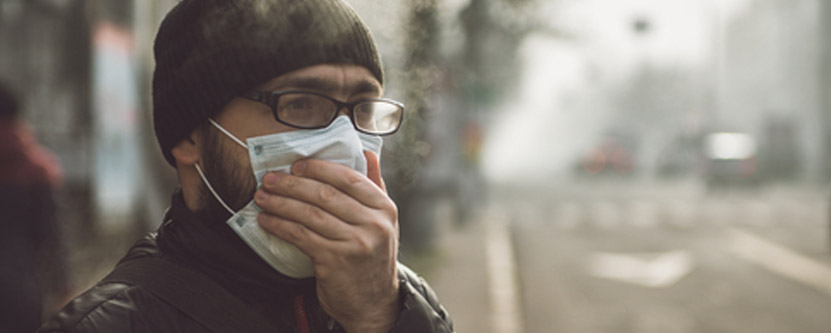Corona virus is one of the common viruses that can cause infection in your sinuses, nose or upper throat. Most of them are not dangerous as they present with mild symptoms and can be treated symptomatically, but it killed around 858 people from Middle East respiratory syndrome (MERS) in 2015, this is because of its severe presentation causing respiratory failure. Undiscovered corona viruses like the Wuhan Coronavirus are very dangerous because specific treatment for such viruses is not yet available and it rapidly progresses to cause multi-organ failure.
[the_ad id=”6076″]
This category of the virus causes harmful diseases in mammals as well as in birds. In humans, the virus causes mild respiratory infections, which in rare cases may even cause death. In animals like cows and pigs, it causes diarrhea, while in chickens it causes severe respiratory infections. You may be shocked to know that there are no vaccines currently available for the treatment of this disease.
When it comes to the basic description of the virus, Coronavirus comes under the sub-family Orthocoronavirinae. It has been surrounded by an envelope like a frame, which gives a definite sense of the single-stranded RNA genome. The shape of their nucleocapsid is helical. The size of coronaviruses ranges from 26 to 32 kilobases. It is the largest category for an RNA virus. In most cases, it is difficult to detect if coronavirus or a different cold-causing virus is causing you fever.
Known as “2019-nCoV”, the newly identified coronavirus can cause pneumonia, and like other respiratory infections, it has an incubation of between 1 and 14 days.
What exactly is a coronavirus?
Early discovered in the 1960s, the name of this virus comes from the crown-like spikes that it has its surface. The word corona came from the Latin word “Crown.” Coronaviruses are a large group of viruses that infect animals and mammals like bats, pigs. Scientists call them zoonotic because they get a transfer from animals to humans.
Causes for infection from coronavirus:
Scientists have experimentally identified that there are two possible reasons for the disease from coronavirus:
- Consumption of wildlife foods such as bats: The most common cause of the infection of the coronavirus is eating wild animals. Most of the cases have come across for eating bats and snakes.
- Animal pathogens: The body physiology of every animal is different; thus, every animal have some specific micro-organism residing in their body — Eating them affects the incompatibility in the creature and the chance of traditional suffering increases.
- Transmission: Transmission of coronavirus takes place while contacting a surface or object that has the virus and then touching your nose, eyes, or mouth.
Signs and Symptoms of the Infection:
Many people get infected with coronaviruses at one point in their lives, but symptoms are typically mild to moderate. In some cases, the viruses can cause lower-respiratory tract illnesses such as pneumonia and bronchitis.
Coronavirus usually affects the respiratory system in human, so the various symptoms traditionally observed in human beings are: –
- A general feeling of being unwell
- Respiratory illness
- Nose running
- Coughing
- Sore throat
- Fever
- Chills
- Pneumonia
- Difficulty in breathing
- Kidney failure
Treatment options:
The treatment of coronavirus is not available, but following prevention measure suit best for not being the host:
- Lab tests: One must go for a lab test including the nose, and throat cultures, and blood tests to find out whether he/she is affected by coronavirus or any other type of virus.
- Self-safety: There is no vaccine for coronavirus. So, you should take the prevention measure like washing your hands with soap and warm water. Keep your hands and fingers away from your eyes, mouth, and nose if not washed. Don’t come in contact with infected people.
- Food management: Treatment of coronavirus infection is in the same way as that of cold virus-like taking plenty of rest, drinking fluids.
- Drugs: Only take over-the-counter medicine for the treatment of sore throat. But don’t give it to children or teens younger than 19 years of age. Using drugs like ibuprofen or acetaminophen gives you some relief but not the cure.
- Convalescent plasma treatments: This treatment can save the life of the patient to some months, and none have been FDA-approved. But the exact procedure is not available.
Advice:
Most people with human coronavirus illness will recover on their own. You can follow the following pieces of information to protect or relief yourself:
- For children: Do not give Aspirin to children if they are suffering from coronavirus.
- Environmental measure: You can use a room humidifier or a hot shower for easy recovery from sore throat and cough.
- Animal contacts: Don’t come in touch with the most coronavirus transmitting animals like camel, bats, or other wild animals. It would help if you stay away from them.
- Using hankies: Cover your mouth while sneezing. Clean and disinfect frequently touched objects and surfaces.
Source:

